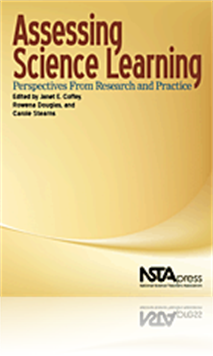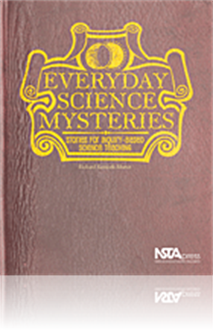All Book Chapters
Book Chapter
Using Assessment Design As A Model Of Professional Development
In this chapter, the authors describe a professional development model in which teachers collaborated with science content experts, assessment experts, and researchers to create a series of formative assessments to accompany each of their science uni...
Book Chapter
On the Role and Impact of Formative Assessment on Science Inquiry Teaching and Learning
In this chapter, the authors begin by describing what they mean by formative assessment and outline the potential and challenges of trying to implement and study this promising technique for scientific inquiry teaching. Next they describe their study...
Book Chapter
Using Formative Assessment And Feedback To Improve Science Teacher Practice
The authors in this chapter advocate use of the Reformed Teacher Observation Protocol (RTOP). This tool was originally developed for research on secondary physics teacher’s classroom practices, by science teachers for self-evaluation of their own a...
Book Chapter
Using Data To Move Schools From Resignation To Results: The Power Of Collaborative Inquiry
In this chapter, the author studies the impact of school communities’ analysis of multiple sources of student assessment data on their instructional decisions and organizational responses. The author poses simple questions that school groups can us...
Book Chapter
From Practice to Research and Back: Perspectives and Tools in Assessing for Learning
In this chapter, the authors draw on research and teacher practice to share the story of their own professional inquiry that led them to an exciting marginal space between the worlds of classroom teachers and education researchers. This chapter is in...
Book Chapter
Documenting Early Science Learning
Young children are fascinated by the natural world. They think about how things work, what is alive, and why some things change their shape and form. Science explorations such as planting, animal studies, and cooking are a natural part of early child...
Book Chapter
Using Science Notebooks as an Informal Assessment Tool
Science notebooks have been promoted as a means to enhance students’ scientific and literacy skills and as formative assessment tools for teachers. The author hopes this chapter will help you find ways to make science notebooks more effective tools...
Book Chapter
In this chapter, the authors discuss an instructional framework for scientific explanations, provide a set of rubrics to assess student work, illustrate types of feedback to give students, and describe how to develop assessment tasks to assess studen...
Book Chapter
Assessment Of Laboratory Investigations
The assessment of a laboratory investigation has two distinct components. The first is an evaluation of the quality of the laboratory investigation itself: Does it meet the criteria for a desired laboratory experience? The second is an evaluation of ...
Book Chapter
Assessing Science Knowledge: Seeing More Through the Formative Assessment Lens
In this chapter, the authors focus on classroom assessment practice, with emphasis placed on embedded diagnostic assessment. Embedded assessment activities require teachers and students to rethink their responsibilities in the classroom learning comm...
Book Chapter
Exploring the Role of Technology-Based Simulations in Science Assessment: The Calipers Project
In this chapter, the authors describe a project funded by the National Science Foundation, “Calipers: Using Stimulation to Assess Complex Science Learning.” This project is a two-year demonstration project that aims to use technology-supported �...
Book Chapter
This book, and particularly the stories which lie within, provide an opportunity for students to take ownership of their learning and learn science in a way that will give them a more positive attitude about science. In addition, it will serve to hel...
Book Chapter
The mystery here has a lot to do with the life cycle of the insect in the cereal and what the various stages were that Emma found in the box. However, it is important that children get to know more about the most populous animals on our planet. It is...
Book Chapter
Water makes up a very high percentage of all living things. This story is aimed at providing children with the opportunity to measure the surprising amount of water found in fruit. It also provides an opportunity for the teacher to emphasize the impo...
Book Chapter
Children as well as adults are usually intrigued by the ideas of bargains. More seeds for less money is often enough to convince them to buy a larger, cheaper package. In this case, the children are savvy enough to question the value of either packag...



